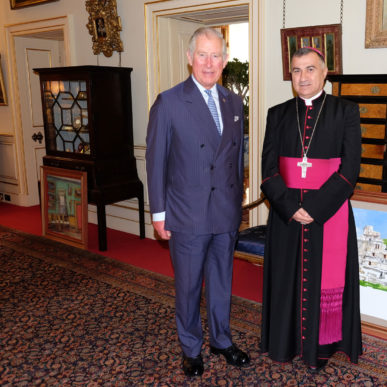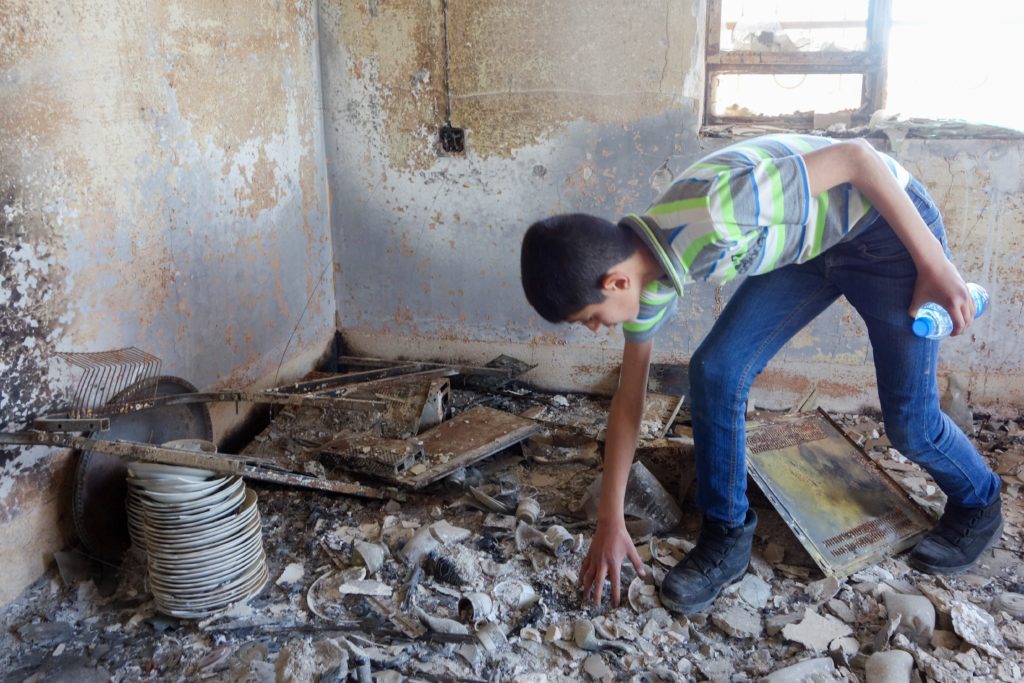
Church leaders in northern Iraq are launching an ambitious US$262 million “Marshall Plan” for the reconstruction of Christian-majority villages devastated by the occupation of Islamic State (IS) jihadists – but knowing they could be subjected to attacks while they implement it.
The ecumenical Bishops’ Emergency Committee (BEC) hopes to raise the $262 million from Europe and the US, from a variety of state and non-state organisations, the Chaldean Catholic Archbishop of Erbil, Bashar Warda, told World Watch Monitor this week on a visit to London, during which he met Prince Charles, members of the UK government, and London’s Chaldean community.
More than 100,000 people, including many Christians, fled Mosul and the surrounding Nineveh Plains during IS’s lightning strike of summer 2014. Some of those have fled to Jordan, Lebanon or Turkey and sought asylum outside the Middle East, and in 2015 clerics and charities were warning that without major intervention, Christians could disappear from Iraq within five years. A report by an alliance of Christian NGOs last year found that Christians have tended to avoid UN camps in Jordan and Kurdistan for fear of harassment, and are thereby missing out on aid.
Now that IS’s military defeat is thought to be imminent, around half of those residents who have been sheltering in Erbil have said they want to return home to rebuild their lives in Iraq – and more have said they are considering returning.
There have as yet been no offers of funding for the reconstruction efforts from either the Shia-led government in Baghdad, nor from the Kurdish Regional Government, the archbishop said. However, he said that the Churches expect Baghdad to take care of restoring infrastructure such as roads, water and electricity provision. The Archdiocese in Erbil has spent US$40 million in the last three years on rents, shelter, medical support, food and schools, which it has received from various church-related NGOs.
The US in particular has a responsibility to help rebuild the Christian villages, the archbishop argued, because of its leading role in the 2003 invasion. “The invasion was really a big mistake, and withdrawing was a disaster, when (you) left all of the country in the hands of all these sectarian political parties,” he said.
The BEC wants to repair 13,000 homes in nine villages in the Nineveh Plains region, estimating an average cost of US$7,000 per home. “There are different challenges: mines, bombs – we expect probably sometimes some attacks,” Archbishop Warda added. He went on to list the various militias that are still active in the area, some of which are accused of looting of homes that owners are poised to reoccupy.

The BEC has brought together the Chaldean and Syriac Catholic Churches and the Syriac Orthodox Church, and the crisis has forced them into an unprecedented level of collaboration. However last week Warda’s Chaldean Church quickly distanced itself from a 12 May statement issued by three Syriac bishops calling for an internationally protected enclave within the Nineveh Plains for the Christians and other non-Muslim communities.
“You cannot ask for international troops to come and protect you; this would be against the sovereignty of Iraq,” he said. A protected enclave “would be good if it would happen, but will not be realistic. None of the countries are going to send troops to protect Christians and make them more vulnerable. We have to work our way with all our neighbours – Sunni, Shabak, Shia, Kurds,” the archbishop said.
Some Christians from areas of Mosul that have been liberated have made trips back to inspect their homes, but none are yet planning to return to them, the archbishop said.
By contrast, some 500 families have returned to a less-damaged village, Telskuf, where the scale of damage has been assessed as between 25 and 30 per cent.
These initiatives are also supported by the key aims of the One Million Voices petition, which are “dignity in accommodation” and “recognition for the role of the Church in rebuilding and reconciliation”. The petition, to be handed into the UN General Assembly in New York later this year has reached 263,617 signatures from 116 countries.
